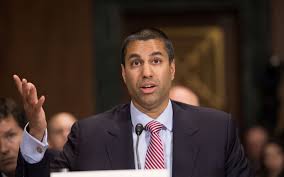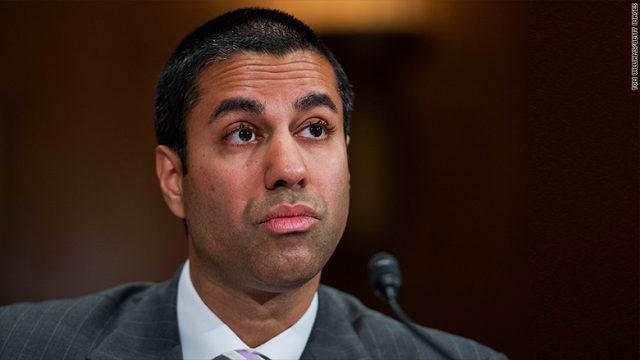 Nathan Gray woke up one morning this month and received an alarming notification from Comcast, his internet provider, claiming he had exceeded his Comcast terabyte data cap and was being billed an additional $10 for a 50 GB allotment of extra data.
Nathan Gray woke up one morning this month and received an alarming notification from Comcast, his internet provider, claiming he had exceeded his Comcast terabyte data cap and was being billed an additional $10 for a 50 GB allotment of extra data.
“This has never happened before and I was only six days into my monthly billing cycle, so I assumed it must be a mistake,” Gray told Stop the Cap! “But Comcast told me it wasn’t a mistake.”
Gray was hardly alone. One month earlier, “Bogreenwoo” discovered his family had blown the roof off their internet usage, exceeding 1 TB by the middle of the billing cycle, with more usage piling up hour after hour.
“Xfinity was adding 50 GB blocks every day at $10 each and calls to tech support were no help,” he shared on Comcast’s customer support forum.
Similar complaints are brought up on that forum at least weekly, if not more often. Comcast counterclaims that usage exceeding 1 TB a month is so rare, it represents only about 1% of its customer base. But customers with huge internet bills from Comcast who stumble their way to the company’s support forum strongly dispute that notion.
“Well good luck with finding a solution or even finding anyone at Comcast who cares or anyone anywhere else as far as that goes,” shared “Amaasing.” “I have had this issue more than once and have talked with every vice president of customer service and had discussions with the security department and even filed a complaint with the FCC and nothing happened at all.”
Some users, like Amaasing, have received so many bills stung with overlimit fees they now turn their computers off in the evening and unplug their cable modems. In many cases the usage keeps rising anyway.
 “Today when I logged in, I had apparently used 196 GB yesterday,” Amaasing wrote. “196 GB in 24 hours? Seriously?”
“Today when I logged in, I had apparently used 196 GB yesterday,” Amaasing wrote. “196 GB in 24 hours? Seriously?”
For most customers in this predicament, Comcast is quick to blame customers for the usage and leave the detective work up to them. Customer support will not entertain suggestions their usage meter is inaccurate. In their view, it is more likely someone is illicitly connected to your Wi-Fi and stealing your service or you are running some bandwidth-heavy application or your computer has been hijacked by hackers or pirates.
While you are left to investigate which of these might be true, Comcast is free to continue billing your account overlimit fees.
Comcast claims it will forgive customers who exceed their data allowance twice ‘a year’:
“We’ll provide you with two courtesy months, so you will not be billed the first two times you exceed a terabyte while you are getting used to the new data usage plan. This means that you will only be subject to overage charges if you use more than a terabyte for a third time in a 12-month period. If you use more than a terabyte two times or less in a 12-month period, your courtesy month balance will reset to two at the end of these 12 months. However, if you use more than a terabyte three times in a 12-month period, no more courtesy months will be given.”
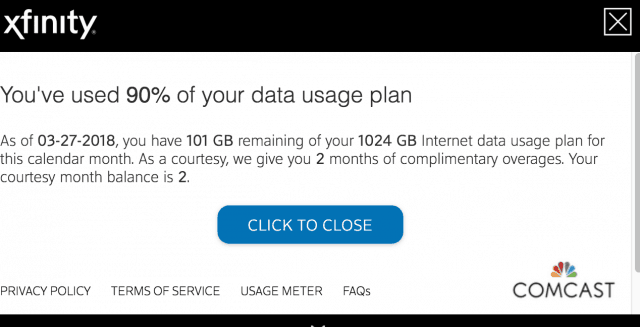 After “courtesy months” expire, you are on the hook for whatever excess usage Comcast determines you have consumed. Some Comcast customers assume the courtesy month counter resets each calendar year, but in fact it only resets after 12 consecutive months of staying within your allowance limit.
After “courtesy months” expire, you are on the hook for whatever excess usage Comcast determines you have consumed. Some Comcast customers assume the courtesy month counter resets each calendar year, but in fact it only resets after 12 consecutive months of staying within your allowance limit.
What causes “excess usage” is anyone’s guess. Comcast customers have documented several recent causes why they have mysteriously started blowing through their 1 TB data allowance:
- The growing prevalence of 4K video, the highest streaming video quality available through online video streaming services can be responsible for a sudden spike of usage. Netflix and other services that support 4K video content with high dynamic range can eat up 7 GB to 10 GB of data per hour. Many services allow you to downgrade your video settings with minimal quality loss. We recommend trying settings typically labeled 720 or 1080 — the lower the better if you are running up against your allowance.
- Third party backup and cloud storage tools: That online backup or cloud storage service you are using may be malfunctioning. There are several reports about Amazon Drive having problems recently, causing files to be repeatedly transferred and driving up usage to several hundred gigabytes a day in some cases. If you use Amazon Drive and have seen a huge spike in usage, try uninstalling or turning off the service for several days and see if usage falls dramatically. Other file and computer backup services that store your data in the cloud can consume a lot of data, especially when installing them on a new computer for the first time. Even some cell phone backup services designed to store your photos in the cloud can malfunction and repeatedly try to send the same photos over and over. Disable these tools for several days and check your usage levels.
- Third party usage: Family members doing something bandwidth intensive can also be responsible for dramatic usage spikes. Although downloading video game updates can consume very large amounts of data, game play itself typically has little impact on your data usage. Check with family members to see if they are watching high bandwidth video or have installed a file backup service. Less common is an uninvited guest on your Wi-Fi network. Comcast often points to Wi-Fi security as a major problem when a neighbor gains access to your internet connection to download huge numbers of files. You can change your Wi-Fi password to help lock down your network. Make sure not to use plain word passwords — use a mixture of letters, numbers, and symbols.
- Comcast’s meter is simply inaccurate. There is no independent third-party verification or government oversight of Comcast’s usage meter. Most ISPs hire a third-party contractor to design and implement their data measurement meters, but those contractors are ultimately answerable to the provider — not to you, giving little peace of mind to consumers who are forced to trust their cable company to be honest. Our country’s Founding Fathers placed great importance on accurate measuring and weighing tools, so much so it is addressed in Section VIII of Article I of the U.S. Constitution. That section gives authority to Congress to establish accurate and regulated measurement tools. Each state has their own way of managing this, often with a bureau of weights and measurements that independently verifies and certifies — with a tamper-evident sticker, the accuracy of the food scale at your local grocer or the gas pump at a nearby service station. Comcast has resisted similar third-party oversight for its usage meter. But considering the company’s overlimit fees can add a substantial sum to customer bills, having this kind of oversight seems appropriate.
Avoiding the usage cap: Comcast ironically provides its own insurance plan to protect customers from its own arbitrary data allowance. For peace of mind, Comcast collects an extra $50 a month ($20 for gigabit speed DOCSIS 3.1 plans) if you wish to waive the data cap altogether. Data caps are completely under the control of Comcast and are especially prevalent in regions of the country where a lack of competition exists. But Comcast’s arguments in favor of data caps don’t wash at the nation’s second largest cable company – Charter Communications, which markets its internet service as having no data caps at all. In fact, Charter CEO Thomas Rutledge never saw much use for data caps at Charter or Cablevision, the company he used to head.
Debunking arguments for usage caps at Comcast and other ISPs. (5:46)


 Subscribe
Subscribe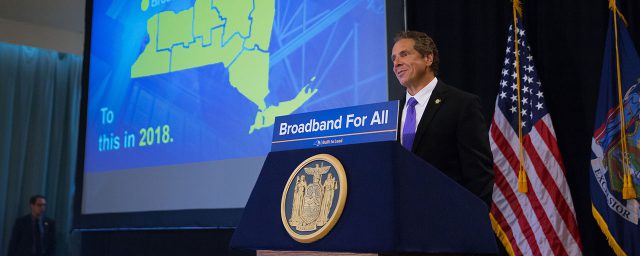
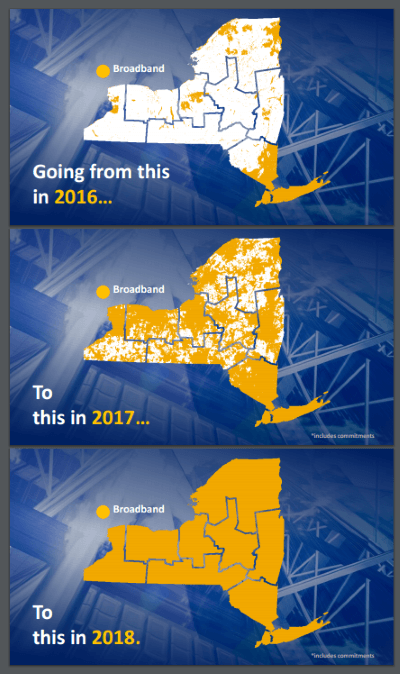
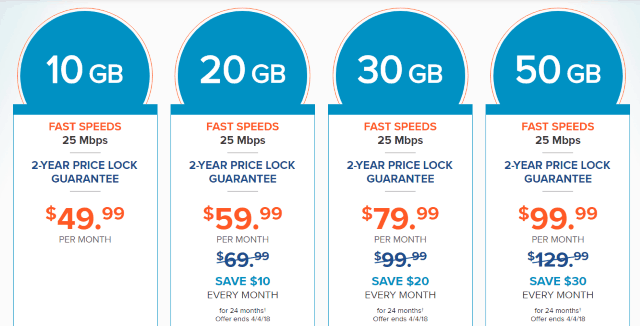
 “This is a huge disappointment for us,” Pat added. “We were counting on this happening. Told numerous times it would. Now we have to debate moving, we can’t continue not having internet. My oldest son just graduated high school never having internet at home.”
“This is a huge disappointment for us,” Pat added. “We were counting on this happening. Told numerous times it would. Now we have to debate moving, we can’t continue not having internet. My oldest son just graduated high school never having internet at home.” Verizon Communications has selected Samsung Electronics as a major supplier of the wireless company’s forthcoming 5G wireless service, launching first in Sacramento, Calif., in the second half of this year.
Verizon Communications has selected Samsung Electronics as a major supplier of the wireless company’s forthcoming 5G wireless service, launching first in Sacramento, Calif., in the second half of this year.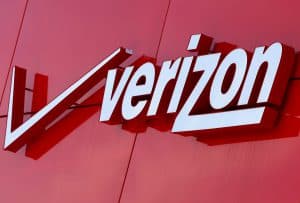 Verizon’s wireless customers in Sacramento will be the first to receive invitations to switch their home broadband accounts away from AT&T, Frontier, Wave Broadband and Comcast — the four largest incumbent providers in the greater Sacramento area. Verizon claims its 5G service can support speeds up to 1Gbps. Verizon has been testing 5G service in 11 U.S. cities, but has kept pricing details to itself. The issue of data caps has been repeatedly raised and most industry analysts predict Verizon will usage cap its 5G service at around 200GB a month. Whether the company plans to offer an unlimited use plan is unknown.
Verizon’s wireless customers in Sacramento will be the first to receive invitations to switch their home broadband accounts away from AT&T, Frontier, Wave Broadband and Comcast — the four largest incumbent providers in the greater Sacramento area. Verizon claims its 5G service can support speeds up to 1Gbps. Verizon has been testing 5G service in 11 U.S. cities, but has kept pricing details to itself. The issue of data caps has been repeatedly raised and most industry analysts predict Verizon will usage cap its 5G service at around 200GB a month. Whether the company plans to offer an unlimited use plan is unknown.